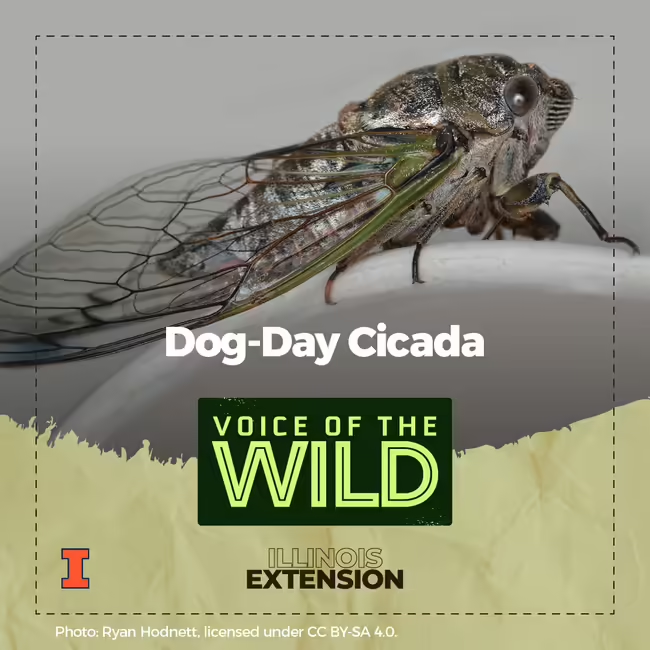
Dog-day cicada (Neotibicen canicularis)
While canicularis is the insect most associated with the “dog-day” name, that common name is shared by several species. If the northern dog-day cicada doesn’t sound like what you learned as the dog day cicada, check out episode 15 on Neotibicen pruinosis; that’s the one I learned to call dog-day cicada in central Illinois.
Thank you to Wil Hershberger for letting us use the insect calls from SongsofInsects.com.
Do you want to learn more bird songs, frog calls, and insect noises? Join Voice of the Wild every Friday to explore a new wild voice. We’re available on most podcast platforms, including Apple Podcasts, Spotify, and YouTube.
- Subscribe to the podcast Here
- Subscribe to the Newsletter
- Listen on our Homepage
If you live in northern illinois and hear a sound like a buzz saw coming from the tops of pines or other mixed forest trees, it's probably this common cicada. The high pitched song can be heard in the evening but stops abruptly as night falls. While It’s typically less than two inches long, its coloration and patterning is highly variable. Its name refers to its habit of calling on the most sweltering days of the year.
This is the Northern Dog-Day cicada; Neotibicen canicularis from the family Cicadidae, This family of insects is in the order of true bugs, hemiptera. Canicularis has a very distinct song; high pitched and without pulsations. Here it is again, and stick around for a note afterwards on its common name.
While canicularis is the insect most associated with the “dog-day” name, that common name is widespread and can refer to several different species in the neotibicen genus. If canicularis doesn’t sound like what you learned as the dog day cicada, check out episode 15 on neotibicen pruinosis, the scissor grinder cicada- it is also sometimes called dog day cicada, That’s the trouble with common names.
Thank you to Wil Hershberger for letting us use the insect calls from SongsofInsects.com. You can find a link to that website in the description. And thank you for tuning in to learn a new wild voice with Illinois Extension.